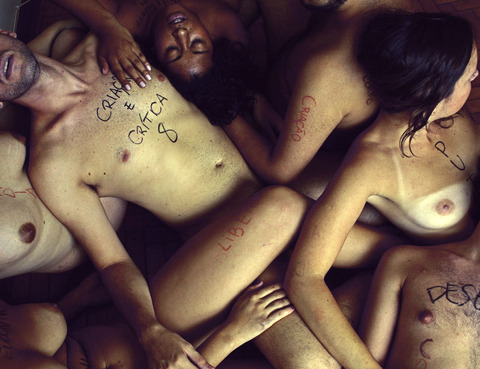“Diadorim, meu amor” ou o Narciso Afogado: O mito do andrógino e ritos de passagem em Grande Sertão: Veredas
DOI:
https://doi.org/10.11606/issn.1984-1124.v5i8p33-46Keywords:
psychologic criticism, myths, esoterism, metaphisyc, sexuality.Abstract
The present article studies the way that Diadorim - character from Sertão: Veredas, from João Guimarães Rosa -, vivifies and represents the archetype of totality represented by the Androgynous: emblematic entity, contradictory and also harmonic, double and unique, at the same time coincident and opposite. For this we will use the concepts and developments of this myth, passing first by an elucidation given both by the literary of psychological, such as the history of religions. Conscious of the breadth and depth that this issue involves the study of character will make it relating to 'themes of ritual initiation' at the light of the metaphysical, esoteric and symbolic contained in the text will be considered especially the specific episodes of death and funeral of the hero, after bloody battle.
Downloads
Download data is not yet available.
Downloads
Published
2012-04-15
Issue
Section
Articles
License
Authors who publish with this journal agree to the following terms:
- Authors retain copyright and grant the journal right of first publication with the work simultaneously licensed under a Creative Commons Attribution License that allows others to share the work with an acknowledgment of the work's authorship and initial publication in this journal.
- Authors can enter into separate, additional contractual arrangements for the non-exclusive distribution of the journal's published version of the work (e.g., post it to an institutional repository or publish it in a book), with an acknowledgment of its initial publication in this journal.
- Authors are permitted and encouraged to post their work online (e.g., in institutional repositories or on their website) before and during the submission process, as it can lead to productive exchanges, as well as earlier and greater citation of published work (See The Effect of Open Access).
How to Cite
Ferreira, C. F. B. (2012). “Diadorim, meu amor” ou o Narciso Afogado: O mito do andrógino e ritos de passagem em Grande Sertão: Veredas. Revista Criação & Crítica, 8, 33-46. https://doi.org/10.11606/issn.1984-1124.v5i8p33-46



